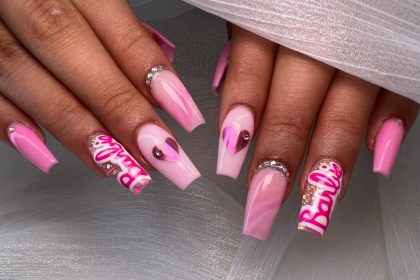Understanding and adapting to hormone-related skin changes throughout life

Taking care of your skin is more than just using the right products—it’s about understanding how your body works. Hormones, our body’s chemical messengers, play a huge role in skin health, and as they shift throughout life stages, they can bring new challenges. Adapting your skincare routine to meet these changes is the key to keeping your skin glowing and healthy no matter your age.
The hormone-skin connection
Hormones impact every layer of your skin.
Hormones regulate critical processes such as oil production, collagen formation, and moisture retention. From teenage breakouts to post-menopausal dryness, these chemical messengers are the underlying reason behind many skin changes.
Key ways hormones affect your skin include:
- Regulating oil glands
- Boosting or depleting collagen
- Influencing cell turnover rates
- Controlling moisture retention
- Triggering pigmentation changes
Every life stage brings unique challenges. Understanding these shifts is your first step to crafting a skincare routine that truly works for you.
Pregnancy stage skincare
Pregnancy and its hormonal rollercoaster can be both a blessing and a challenge for your skin.
During pregnancy, your body experiences dramatic hormonal changes that can cause everything from glowing skin to stubborn breakouts and pigmentation issues.
Common pregnancy skin challenges:
- Increased oil production leading to hormonal acne
- Development of melasma or “pregnancy mask”
- Heightened skin sensitivity to products
How to manage pregnancy-related skin changes:
- Use gentle active ingredients like azelaic acid and lactic acid to treat acne safely.
- Opt for products with broad-spectrum sunscreen to prevent melasma.
- Stick to alcohol-free cleansers and natural moisturizers to protect sensitive skin.
Focusing on safe and simple skincare during this time ensures both you and your baby remain healthy.
Life transition skincare
Stress and hormonal shifts are a recipe for skin chaos.
Big life changes, whether it’s switching careers or adjusting to parenthood, often trigger stress-related hormone fluctuations that wreak havoc on your skin.
Key concerns during stressful transitions:
- Increased androgen levels causing excess oil
- Stress-related breakouts
- Weakening of your skin’s protective barrier
Solutions for keeping your skin balanced:
- Introduce retinoid products to unclog pores and improve texture.
- Use stress-response skincare with calming ingredients like niacinamide.
- Focus on lifestyle habits like regular exercise, better sleep, and a diet rich in antioxidants to counteract hormonal effects.
When life feels unpredictable, a stable skincare routine can be your grounding force.
Perimenopause skincare
Approaching menopause means it’s time to prioritize hydration and structure.
As hormone levels start to fluctuate, your skin may lose its youthful bounce and hydration. These changes can cause dryness, hormonal acne, and even rosacea flares.
Primary skin issues during perimenopause:
- Dehydrated skin that feels tight and uncomfortable
- Collagen loss leading to fine lines
- Persistent hormonal breakouts
Top strategies for perimenopause skincare:
- Add hydration heroes like hyaluronic acid and ceramides to your routine.
- Use retinoids and peptides to support collagen production.
- Strengthen your skin barrier with lipid-rich moisturizers.
This is the time to invest in products that provide deep hydration and long-term anti-aging benefits.
Post-menopausal skincare
After menopause, your skin needs extra love and attention.
With estrogen levels significantly dropping, your skin loses collagen at an accelerated rate. This leads to deep wrinkles, sagging, and extreme dryness.
Key post-menopausal skin concerns:
- Significant collagen loss resulting in skin laxity
- Pronounced wrinkles
- Chronic dryness
How to care for your skin after menopause:
- Focus on rebuilding treatments like peptides and collagen-boosting serums.
- Consider professional treatments, such as micro-needling, to restore structure.
- Use antioxidant-rich products to protect your skin from environmental damage.
Consistency and care go a long way in maintaining healthy skin during this stage.
Essential skincare elements
Regardless of life stage, there are a few essential elements every skincare routine should include.
1. Cleansing
A gentle cleanser can make or break your routine. Choose non-stripping, pH-balanced formulations that won’t irritate sensitive or hormonal skin.
2. Treatment
Targeted treatments tailored to your skin’s needs are crucial. Introduce actives like retinoids, azelaic acid, or peptides based on your specific hormonal concerns.
3. Protection
Daily sun protection is non-negotiable. Broad-spectrum SPF shields your skin from UV damage while antioxidants fight free radicals.
Conclusion
Hormones are powerful, and they can either wreak havoc on your skin or work in your favor when properly managed. By understanding how hormonal changes affect your skin at different stages of life, you can build a skincare routine that not only addresses current concerns but also supports your skin’s long-term health.
Take control of your skincare journey and let your skin thrive through every phase of life. With the right products, lifestyle habits, and a little patience, glowing, healthy skin is within reach—no matter what stage you’re in.














